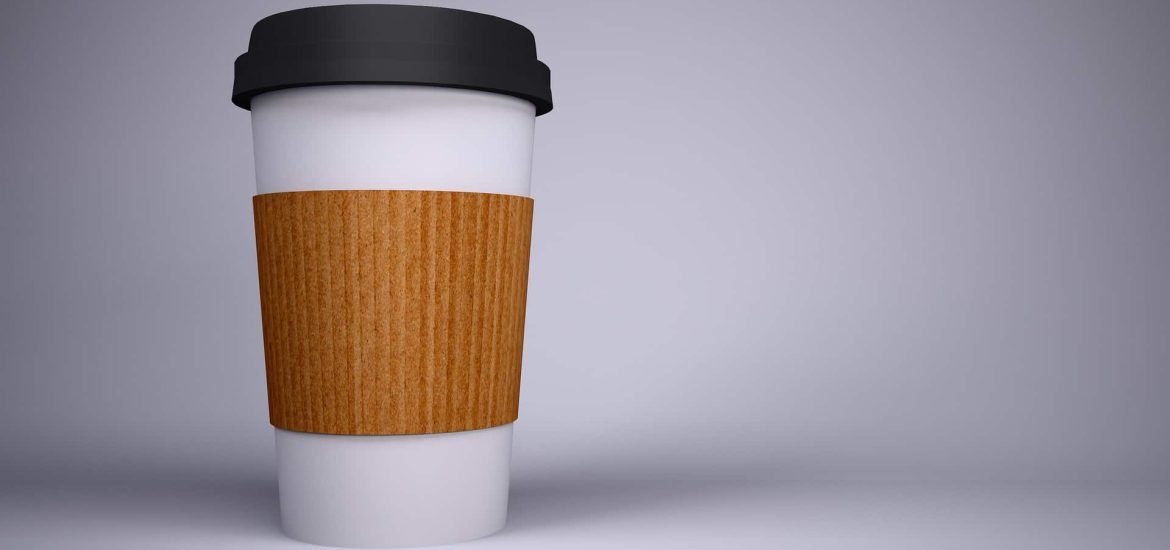
The UK government has rejected calls from environmental groups and lawmakers to impose a tax on disposable coffee cups. The decision has been criticised by environmental campaigners, who say the government is not taking enough definitive action to cut down on waste.
Currently, less than 1% of coffee cups in the UK are recycled, due to both a lack of facilities and the materials themselves. The plastic liner in the cups make them difficult to recycle, and the UK has only three recycling plants that are capable of separating the plastic from paper.
Members of Parliament on the Environmental Audit Committee (EAC) had suggested charging 25 pence for disposable coffee cups in order to curtail their use. Despite the committee’s recommendation, the government decided against imposing the tax, known as the “latte levy.”
It its response, the government left the responsibility to retailers and cup makers. “We are pleased that major coffee retail chains are taking action to reduce single-use coffee cups by offering discounts to customers with reusable cups and are putting in place the infrastructure to ensure cups can be collected for recycling,” said the government.
The response said the government would like to see “all businesses selling disposable coffee cups” offer this service and said companies that produce the cups could be encouraged to incorporate more eco-friendly products.
Campaigners were disappointed by the decision. “The UK’s throwaway culture is having a devastating impact on our streets, beaches and seas,” said EAC chairwoman Mary Creagh. “Our report recommended practical solutions to the disposable packaging crisis. The government’s response shows that despite warm words they plan no real action.”
In January, Prime Minister Theresa May declared a “war on plastic” as she rolled out the government’s 25-year plan to protect the environment. The plan pledged to eliminate all avoidable plastic waste by 2042 and extend a 5 pence charge on plastic bags to all shops.
The government’s response to EAC’s recommendations said the plastic bag charge “has had a big impact” and demonstrated “these types of incentives can change consumer behaviour.” Although the government said the levy was something they “could consider amongst other policy options,” they did not put forward any concrete proposals for a charge on the cups.
Creagh said the EAC had proposed “practical solutions to the disposable packaging crisis,” and showed evidence that charges reduce the use of non-recyclable materials more than discounts.
“By choosing to favour voluntary discounts, the government is ignoring the evidence about what works,” Creagh added.
The government noted that at 0.7%, coffee cups make up a small portion of the UK’s total paper packaging waste. “We believe it is important to look at the packaging producer responsibility system and waste management system as a whole, in order to drive the best environmental outcomes,” said the response.